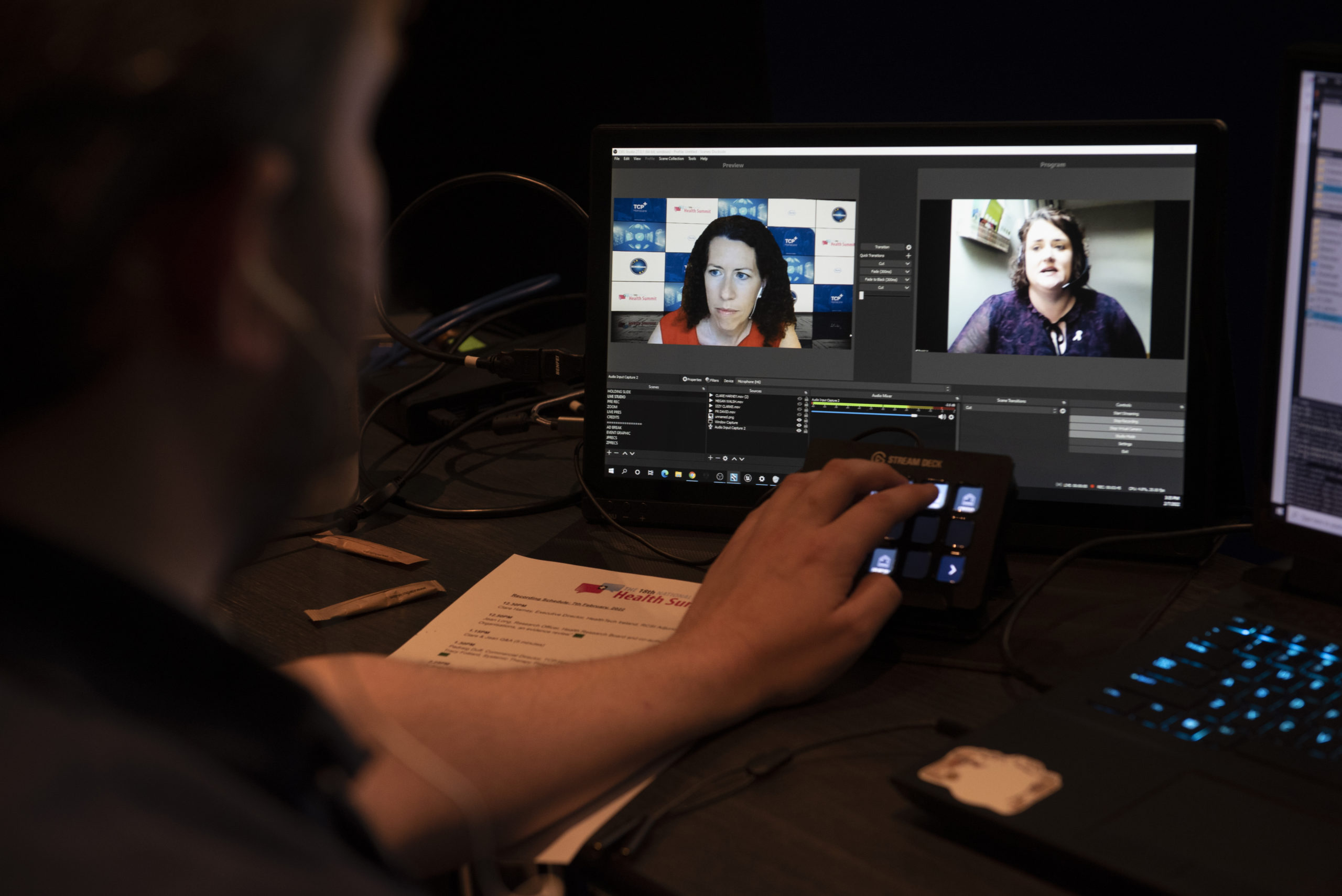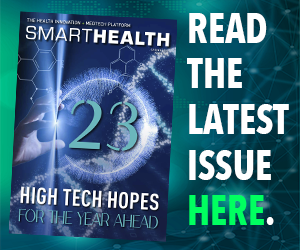The question of whether the health service can disrupt and innovate in a post-covid landscape was the focus of the 18th National Health Summit. The event brought together policy makers and professionals in healthcare management and delivery to discuss subjects including regional healthcare, innovation and the challenges to delivering universal health coverage. The day began with a keynote from Sir David Nicholson, CBE, former Chief Executive of the NHS, and chair of Herefordshire and Worcestershire Integrated Care System and Sandwell and West Birmingham Hospitals NHS Trust.
“The detailed implementation of any healthcare system is critical – in fact, it’s the place where most of the problems occur,” said Nicholson. “For health reform in general, there is no blueprint. You can’t take one model and bring it to another country. The experience is rooted in the community we serve.”
Robert Watt, secretary general of the Department of Health, delivered an update on the implementation of Sláintecare, beginning with the need to adapt to an increased life expectancy in Ireland. “The context for healthcare is that the system is under enormous pressure, and those demands will only increase over time,” said Watt.
The current Sláintecare Reform Programme’s goals include enhancing community care, integrating care between settings, reducing waiting times and providing care on the basis of need, rather than the ability to pay. With the first panel of the day, Sheelah Connolly, research officer at the Economic and Social Research Institute, commented on the slow pace of Sláintecare’s implementation: “In Irish healthcare reform there’s a particular issue going back to 20 years ago, when extensive reform was envisaged for the primary healthcare system, many will agree that these reforms have not been implemented.”
Dr Eddie Molloy, director of Advanced Organisation, said that the issue is political. “The people running regional health systems need clear authority to make decisions. That means no interference. We’ve previously had a decentralised health service with the Health Board, but it didn’t work, because there was constant interference.”
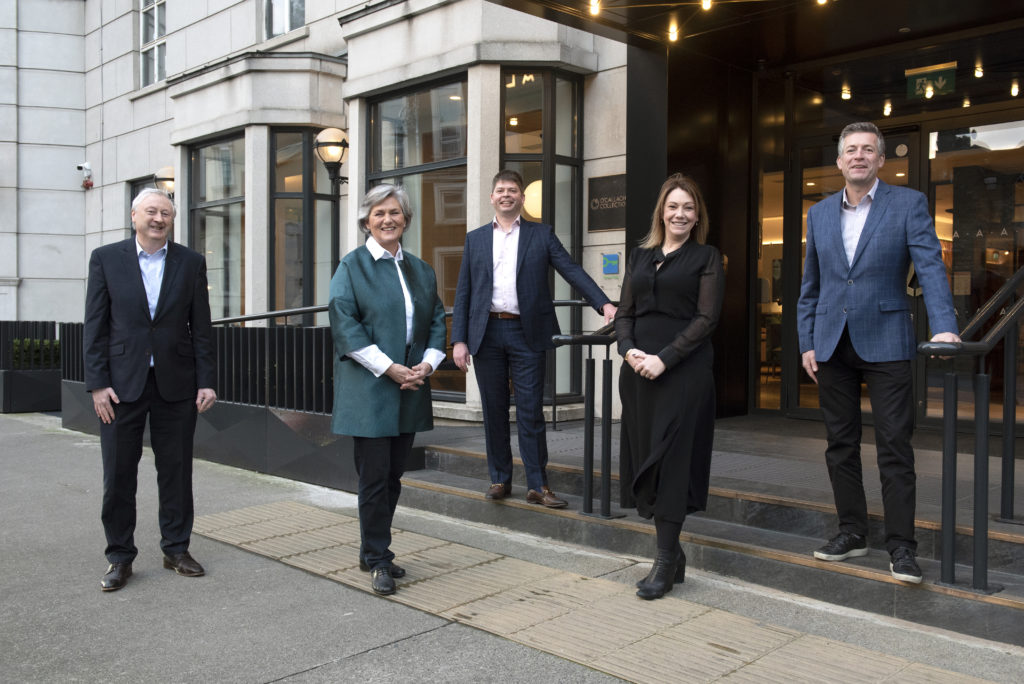
Tony O’Brien, former director general of the HSE, said that leadership from the centre of government is required. “Previous reforms were half attempted but not followed through,” he said. “I would share the concerns of our audience, that unless this has some real impetus behind it, it won’t be followed through on.”
Dr Donal de Buitléir, chair of the Independent Review Group that examined private activity in public hospitals, said that the current situation is comparable to when free secondary education was introduced to Ireland in 1966. “We can either do this the right way or
blow the opportunity,” he said.
Speaking on ‘driving health transformation through modern data platforms’, John Ward, partner and head of digital and emerging technologies at EY Ireland, listed data accessibility as a key challenge for healthcare providers.
“EHR (electronic health record) is talked about as the holy grail of healthcare,” said Ward, “but what we actually have is many different EHRs, providing only a fragment of each patient’s information. Creating a holistic view of a patient’s health is very challenging.”
The programme divided into three streams:
Building back better or continuing as we are?
Delivering on the promise of integrated care
Healthcare innovation and the future patient experience
Siobhain Duggan, Director of Innovation and Healthcare, GS1 Ireland and Clare Harney, Executive Director, HealthTeach Ireland and RCSI Programme Director moderated the latter streams.
Speaking on the health systems and resilience, Francesca Colombo, head of the health division of the Organisation for Economic Cooperation and Development, said that the pandemic was “a powerful reminder that our health systems are not as resilient as they should be, and
that this has an economic impact, and consequences for the global economy.”
Jean Long, research officer at the Health Research Board, and co-author of Regional Health Organisations, an evidence review, discussed the
evidence for effective delivery in creating regional healthcare services, listing utilisation of resources, healthcare
outcomes, efficiency, equity, patient flow and cost as measures of success. A panel on ‘innovative ways to tackle
the backlog and improve healthcare delivery’ featured:
Dr Thorsten Giesecke, General manager of Commercial Business, Janssen Sciences Ireland UC
Yvonne Goff, National director of change and innovation, HSE
Declan Murphy, CEO of Servisource Workforce Solutions
Nicola Byrne, CEO Shine
Dr Giesecke said: “ Now is a fantastic time to invest in innovation. Covid has been a catalyst for change, if we try to go back to the health system we had before, it won’t help, waiting lists won’t go away, and it will put more strain on healthcare systems.”Dr Niamh Lennox-Chhugani, CEO of the International Foundation for Integrated Care, delivered a keynote address on ‘delivering the promise of person-centred care in Ireland’.
“Integrated care systems seek to balance two things,” said Dr Lennox- Chhugani. “They want to encourage collaboration across a system, while establishing a local community focus.” Dr Brian Turner, lecturer at the Department of Economics at University College Cork, gave a presentation on ‘Creating an Irish NHS’.
Dr Turner said that nine per cent of people with private health insurance have plans that provide mainly for public hospital cover.
“20 per cent of the claims paid in 2020 were made to public hospitals, a significant portion of what is paid,” he said.
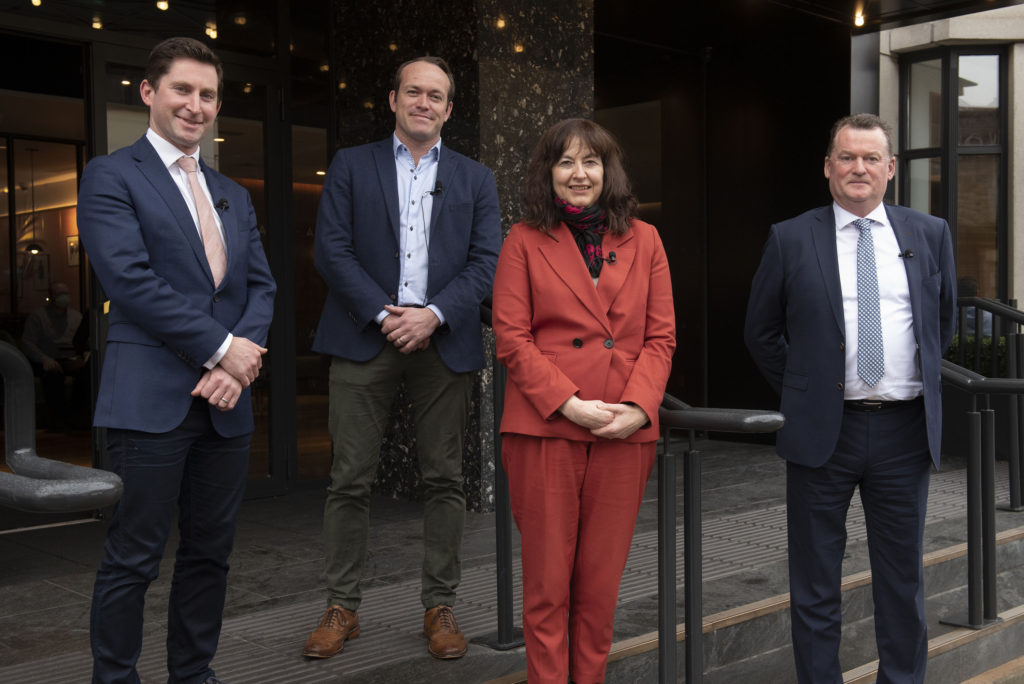
Future shape of healthcare
A panel on ‘the future shape of healthcare’ included Conchúir MacGloinn, strategic partnerships manager at Roche, Mary Day, chief executive at St. James’s Hospital, Derick Mitchell, CEO of the Irish Platform for Patient Organisations, Science and Industry, and Padraig Duff, commercial director of TCP Homecare. Day said that elective hubs will provide a model for the future.
“We need to look at how we separate elective care from our current high level of care we provide in our model 4 hospitals.”
Duff added that the last two years have shown us that “a number of patients are accessing acute care, in hospitals, who could benefit from home care instead.” Discussing patient needs, Mitchell said that they want access to healthcare records, and more engagement, especially in relation to consenting to the use of their data.
Verena Murphy, head of research and business development at Cancer Trials Ireland, and Deirdre Poretti, personalised healthcare lead at Roche, spoke on the National Molecular Tumour Board Programme, while another panel in Stream 2 explored ‘an integrated community care model for oncology patients’.
Tracy Folliard, systemic therapy programme manager at the National Cancer Control Programme, said that there are many opportunities out there to address the issues with capacity the system has experienced in recent years. A panel asking “what will Ireland’s regional healthcare organisations look like?” featured:
Sarah Pinto-Duschinsky, Consulting leader of Health Sciences and Wellness at EY
Andy Bleanden, Community director, ECHAlliance
Dr Phil Richardson, Chief system integration officer, NHS Dorset Clinical Commissioning Group
Dr Brendan O’Shea, GP and Assistant Adjunct Professor, Trinity College Dublin
O’Shea said that smaller hospitals need to strengthen their expertise in gerontology and geriatrics to address the ageing population, and that new structures must increase the number of specialists and senior decision-makers.
“If we don’t do that, new acute beds will be flooded with the right patients at the wrong time.” Another panel, addressing ‘transformative trends to advance patient care’, included:
Marc Butterly, Business creation lead, EIT Health Ireland-UK
Martin Curley, Director of digital transformation and open innovation, HSE
Myles Murray, Chief Executive Officer at PMD Solutions
Thomas Sharkey, Healthcare lead at AWS Ireland
Sharkey said that there are opportunities to change how citizens engage with healthcare, and develop new ‘healthcare pathways’ post-covid. “Patients want more digital in their healthcare. Telehealth is here to stay, and there’s more data available over time to give us trends in health on a national scale, which we should be making use of,” he said.
Curley, meanwhile, said that collaboration between organisations has meant that they can deliver solutions far faster than they can alone. “The cyberattack on the HSE has proven how important cybersecurity is to healthcare, and AWS, Microsoft and Google Cloud can afford to spend more on it than any smaller organisations,” he said.
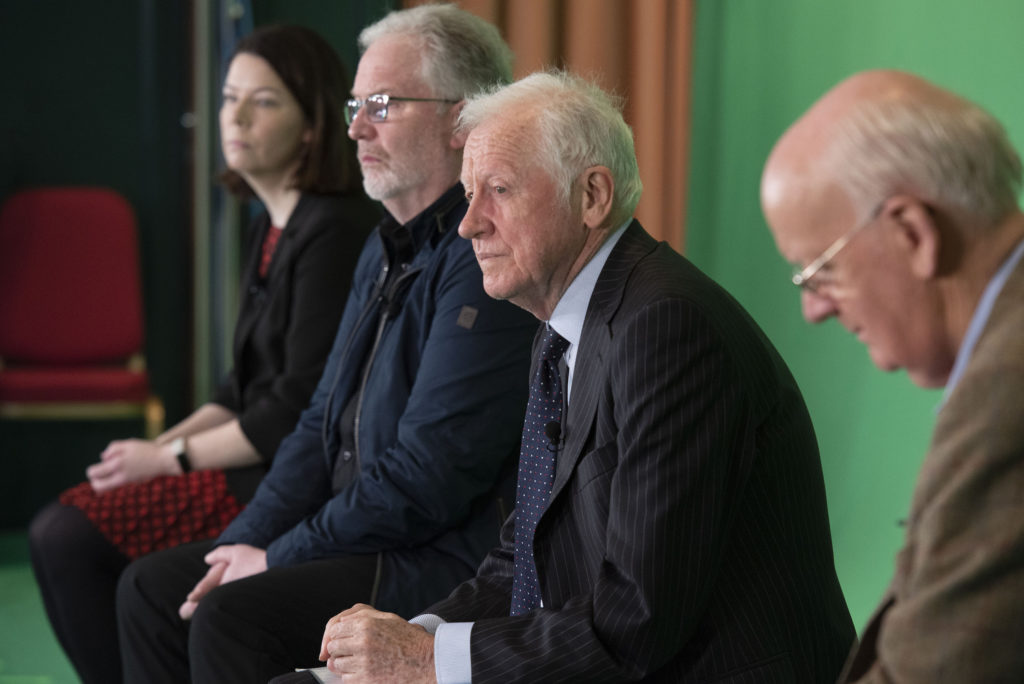
Telehealth is here to stay
Speaking on a panel about ‘the future of healthcare regulation’, Joanelle O’Cleirigh, a partner at Arthur Cox LLP, said that there’s no regulation in the homecare sector, and that it is called for. “I’m aware there’s a bill in Dublin’s programme for passing legislation, but I’m not sure it’s a priority, and in my mind it’s a gap in Ireland’s healthcare,” said O’Cleirigh, naming mental healthcare as another field in need of more attention.
Paul Reid, chief executive officer of the HSE, spoke on the question of ‘what will the new reality look like?’
Cardiology services are now integrated, oncology services and radiology are too, and across cybersecurity, after the attack, we
saw the collaborative approach in action too.
Citing the government-funded vaccination programme and testing and tracing as examples of ‘universal healthcare in practise’, Reid said
bringing together the two models of private and public healthcare in Ireland will help to address long waiting lists.
The final panel of the day took stock of positive service shifts accelerated by the pandemic. David Beirne, managing director of
UPMC Ireland, said that a “patient centred approach with collaboration and partnership” helped the Irish healthcare system get through the last two years.
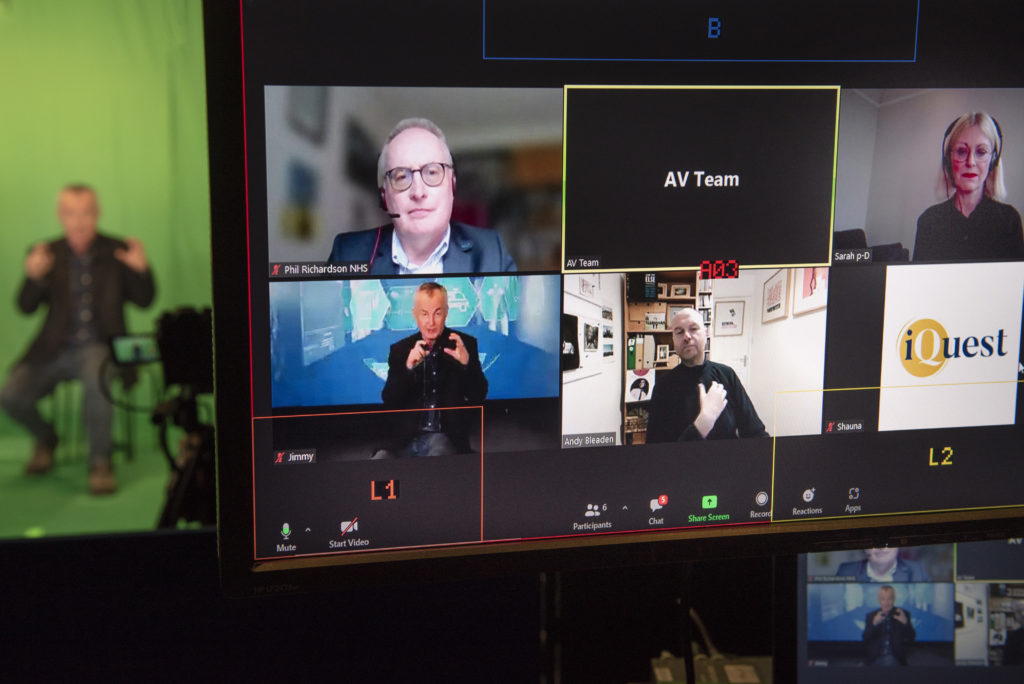
“Cardiology services are now integrated, oncology services and radiology are too, and across cybersecurity, after the attack, we saw the collaborative approach in action too.” Audrey Derveloy, general manager and country president of Novartis Pharma, said that her organisation has a commitment to addressing chronic disease management, in particular that of cardiovascular diseases.
“If we look at cardiovascular disease in Europe, it’s still killing more than 50 per cent of patients per day.” Looking to a future where the healthcare organisations build on progress forced upon them by covid-19, the National Health Summit addressed a changing sector – one still reckoning with the limitations of the past, but beginning to engage with transformational ideas and new technologies.
The 18th National Health Summit was hosted by RTÉ Morning Ireland presenter Audrey Carville and took place virtually on February 8.

